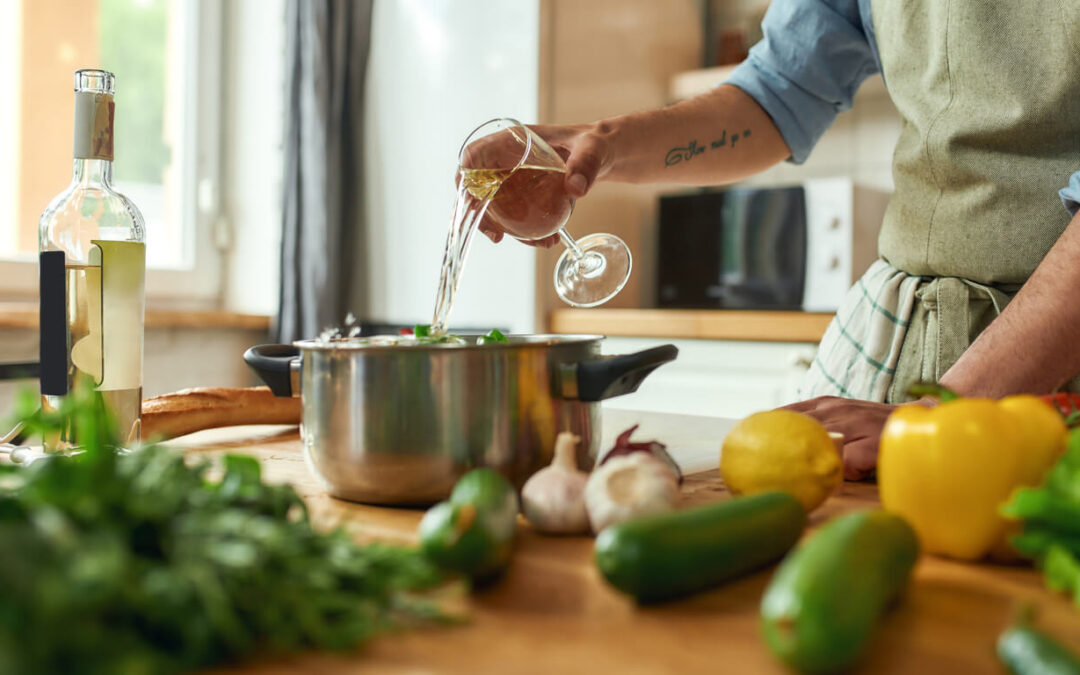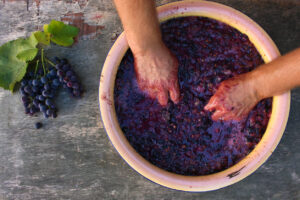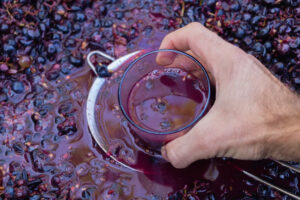What You Need to Start Making Your Own Wine at Home
I’ve been growing grapes and selling fruit through CM Watermelons for years, but I’ve also made wine in my own kitchen since before it became trendy. The first time I opened a bottle I’d made myself; it smelled like summer evenings and a bit of old oak from the cupboard I aged it in. I’ve learned that good homemade wine doesn’t come from expensive equipment. It comes from the right grapes, clean tools, patience, and learning from a few mistakes along the way. You can find the homemade wine making supplies I use myself, and the same fresh wine grapes we’ve grown and used for years.
Why Make Wine at Home?
I’ve met folks who started making wine after a trip to Greece. Others just wanted to see if they could do it. For me, it started on the farm. We had more grapes than we could sell some seasons, so we made wine to keep the harvest from going to waste. Now it’s something I look forward to every year.
Making your own wine means you get to guide every step. You pick the variety, choose when to press, and decide how long to age it. You don’t need a vineyard. I’ve made perfectly drinkable wine in a shed with buckets, old bottles, and a few essential homemade wine making supplies.
Just keep it clean, keep notes, and have the right homemade wine making supplies at hand.
The Basic Wine Making Process
Here’s how I do it each autumn. It’s not fancy, but it works.
- Harvesting the Grapes
Pick your grapes when they taste right. Don’t rely on the calendar alone. I taste, not measure. The fruit tells you when it’s ready. - Crushing and Pressing
Crush the fruit to release juice. I use a basic press, but I’ve stomped on grapes in rubber boots more than once. For white wine, separate skins early. For red, leave them in through fermentation. - Fermentation
Add yeast and let it do its job. Keep the temperature stable. I’ve used garages, sheds, and kitchens. But any cool and calm place will do. - Racking and Clarifying
Once fermentation slows, siphon off the clear wine, leaving the sediment behind. Do this once or twice. Don’t stress if it’s not crystal clear yet. - Ageing and Bottling
Let it sit for a bit. I taste mine every few weeks to see how it’s doing. When it’s ready, bottle it. I use clean bottles, masking tape labels, and a marker. It works.
Essential Homemade Wine Making Supplies
Here’s what I use every season:
- Fermentation vessel (I still use food-safe buckets I bought in 2003)
- Airlock and bung
- Hydrometer
- Siphon hose
- Campden tablets or sanitiser
- Wine bottles and corks
- Wine yeast and nutrient
You don’t need a kit that costs a fortune. Start simple. You can always build up your collection of homemade wine making supplies as you go.
Choosing the Right Grapes
This is where it all begins. I’ve worked with growers across Greece and Italy, and I can tell you this plainly: grapes matter more than anything else.
Some of my favourites:
- Trebbiano – clean, crisp white wine
- Zinfandel – strong and fruity
- Cabernet Sauvignon – structured, rich reds
At CM Watermelons, we bring in grapes picked at their peak. I’ve used them in my own batches, and I stand by them. If I wouldn’t ferment them myself, I wouldn’t ship them.
Tips for First-Time Winemakers
- Start with a 1-gallon batch. Fewer grapes, less stress.
- Jot things down. I’ve forgotten enough over the years to know it helps just like having reliable homemade wine making supplies on hand.
- If it smells odd in week one, don’t panic. It usually sorts itself out.
Common Mistakes to Avoid When Making Wine at Home
I’ve made every mistake on this list. You’ll probably make a few too and that’s fine.
- Sanitise everything, even your hands.
- Don’t rush it. If it’s not bubbling yet, wait.
- Don’t bottle too soon. I once had corks pop out mid-winter. Lesson learned.
- Use real fruit. You can taste the difference every time.
How to Store Homemade Wine After Bottling
I store bottles on their sides in a cool, dark cellar. I’ve also used cupboards, garden sheds, and under the stairs. Keep it somewhere quiet and cool. It doesn’t need to be fancy just away from heat and light. Red wines get better with rest. Whites are more forgiving.
Label each bottle with the grape and date. You’ll forget otherwise, I once served Trebbiano thinking it was Zinfandel.
How Long Does Homemade Wine Take?
Here’s what works for me:
- Fermentation: 1–2 weeks
- Racking and clearing: 4–6 weeks
- Ageing: 1–6 months
From grape to glass: 2 to 6 months. I try my whites around Christmas. I let the reds sit until spring.
Homemade Wine Cost vs Store Bought
My first setup cost £75 fermenter, hydrometer, siphon, bottles, the lot. These days, I make 5-gallon batches (about 24 bottles) for under £40 in ingredients. That works out to around £1.60 a bottle. I’m not claiming it’ll win awards, but I’ll happily open a bottle of my own over a supermarket red most nights.
But it’s not about saving money. It’s about making something from scratch and pouring it for someone you care about.
Legal Note on Home Wine Making in the UK
In the UK, you can legally make wine for personal use. If you want to sell it, get a licence. I keep mine for family, friends, and quiet nights.
Where to Buy Homemade Wine Making Supplies
Start with the grapes. If the fruit isn’t good, no amount of homemade wine making supplies will fix it. At CM Watermelons, we only bring in what we’d use ourselves. If you’re not sure what to order, ask. I’ve helped plenty of people pick grapes they wouldn’t have considered.
Start your home vineyard with CM Watermelons
Home winemaking isn’t about perfection. It’s about process and having the right homemade wine making supplies can make that process smoother. It’s taught me to be patient, to stay curious, and to laugh when something doesn’t go the way I expected.
At CM Watermelons, we’ve made wine from the same grapes we sell, using the same supplies we offer to our customers. We’ve made wine from the same grapes we sell. Some batches turned out brilliant, others a bit odd but they were all worth the effort. If I can make wine with buckets in a shed, so can you.
Start small. Muck in. You’ll taste when it’s going right. And if you’re not sure where to begin, enquire here about the winemaking equipment we actually use ourselves.
Frequently Asked Questions
Can I make wine without grapes?
Yes, but why would you? Juice works but fresh grapes make better wine.
Where can I get wine grapes in the UK?
From us. We supply fresh wine grapes during the season and deliver UK-wide.



